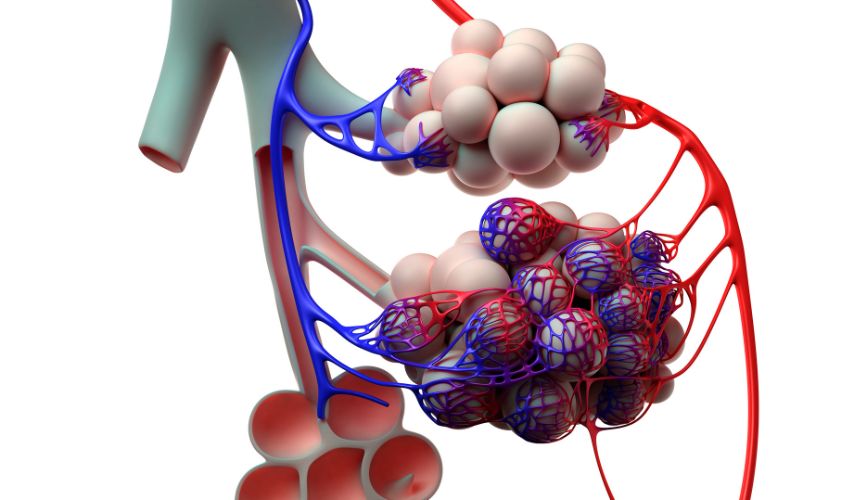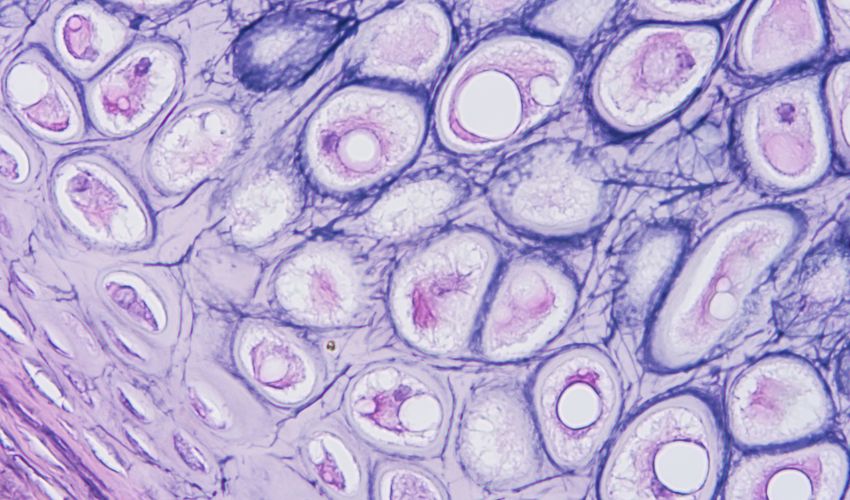Our body is an incredible machine that can heal itself from within. One of the most impressive features of our body is the ability to repair tissues that get damaged due to injuries, infections, or other reasons. Tissue repair is a complex process that involves different cells, molecules, and signaling pathways. In this article, we will explore the fascinating world of tissue repair, its importance, and how to enhance it naturally.
Tissue repair is a complex and intricate process that involves various cells, proteins, and biochemical signals. There are two main types of tissue repair: regeneration and scarring. Regeneration occurs when the injured tissue is replaced with new, healthy tissue that is structurally and functionally identical to the original tissue. Scarring, on the other hand, occurs when the damaged tissue is replaced with fibrous connective tissue that does not have the same structure or function as the original tissue.

The type of tissue repair that occurs depends on several factors, including the type and extent of the injury, the age and overall health of the individual, and the presence of any underlying medical conditions. In general, younger individuals tend to have better tissue repair capacity than older individuals, as the number and activity of stem cells, which play a key role in tissue repair, decline with age.
Stem cells are undifferentiated cells that have the potential to differentiate into various cell types, including muscle cells, nerve cells, and blood cells. They are essential for tissue repair, as they can replace damaged or lost cells and promote the formation of new tissues. Stem cells can be found in various tissues, such as bone marrow, adipose tissue, and muscle tissue, and can be harvested and used for medical purposes.
In addition to stem cells, various other factors can affect tissue repair, such as nutrition, exercise, sleep, and stress. Nutrients such as protein, vitamins, and minerals are essential for tissue repair, as they provide the building blocks and energy needed for the formation of new tissues. Exercise can also stimulate tissue repair, as it increases blood flow and the delivery of nutrients and oxygen to the tissues. Sleep is important for tissue repair, as it allows the body to rest and repair itself, and reduces stress, which can impair tissue repair.
Despite the remarkable capacity of our body to repair tissues, tissue repair can sometimes be hindered by various factors, such as chronic inflammation, poor blood supply, and underlying medical conditions. In such cases, medical interventions may be necessary to promote tissue repair and prevent further damage. However, medical interventions may also pose certain risks and complications, such as infections, excessive scarring, or impaired organ function.
To ensure proper tissue repair, it is important to adopt healthy lifestyle habits and seek medical advice when necessary. By eating a balanced diet, exercising regularly, getting enough sleep, and reducing stress, we can support tissue repair and maintain optimal health. Additionally, by consulting a healthcare provider for personalized advice and guidance, we can ensure that we receive appropriate medical interventions and minimize the risk of complications.
Bullet Points:
- Tissue repair is the process of replacing damaged or dead cells with new ones.
- There are different types of tissue repair, including regeneration, fibrosis, and scar formation.
- Stem cells play a critical role in tissue repair by differentiating into specific cells and promoting regeneration.
- Factors such as age, nutrition, chronic diseases, medications, and lifestyle habits can affect tissue repair.
- Eating a balanced diet, exercising regularly, getting enough sleep, reducing stress, and taking natural supplements can promote tissue repair naturally.
FAQs:
How Long Does Tissue Repair Take?
The time needed for tissue repair depends on the type and severity of the damage. Minor injuries such as cuts or bruises may take a few days to heal, while more significant damage such as bone fractures or surgical wounds may take weeks or even months to repair.
Can Tissue Repair be Accelerated?
Yes, certain factors can accelerate tissue repair, such as providing proper nutrition, minimizing stress, and avoiding unhealthy habits such as smoking or excessive drinking. Additionally, some natural supplements such as vitamin C, collagen, or omega-3 fatty acids may enhance tissue repair.
What Happens if Tissue Repair is Impaired?
Impaired tissue repair can lead to chronic wounds, infections, scar tissue formation, or impaired organ function. It can also increase the risk of developing chronic diseases such as diabetes, heart disease, or cancer.
Are There Any Risks Associated with Tissue Repair?
In general, tissue repair is a safe and natural process that our body can handle. However, in some cases, tissue repair can be impaired due to underlying diseases or conditions, leading to complications such as infections, excessive scarring, or impaired organ function. Additionally, certain medical interventions such as surgeries, chemotherapy, or radiation therapy may interfere with tissue repair and increase the risk of complications.

How Can I Know if My Tissue is Properly Repaired?
Properly repaired tissue should show signs of healing, such as reduced inflammation, increased blood flow, and the formation of new cells and tissues. Additionally, the tissue should function normally and not cause any pain or discomfort. If you have any concerns about your tissue repair, you should consult a healthcare provider.
Conclusion:
Tissue repair is a remarkable process that allows our body to heal itself and recover from injuries and diseases. By understanding the different types of tissue repair, the role of stem cells, and the factors affecting tissue repair, we can promote it naturally and minimize the risk of complications. By adopting healthy lifestyle habits, such as eating a balanced diet, exercising regularly, getting enough sleep, and reducing stress, we can support tissue repair and maintain optimal health. If you have any questions or concerns about tissue repair, you should consult a healthcare provider for personalized advice and guidance.






















